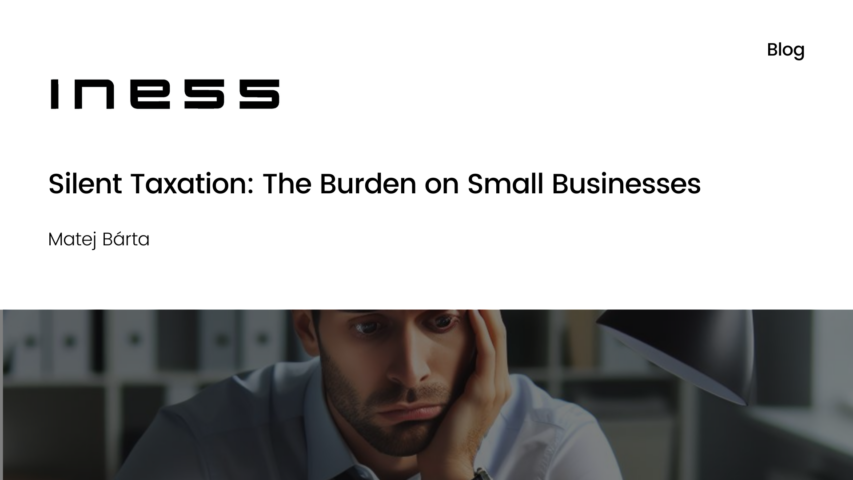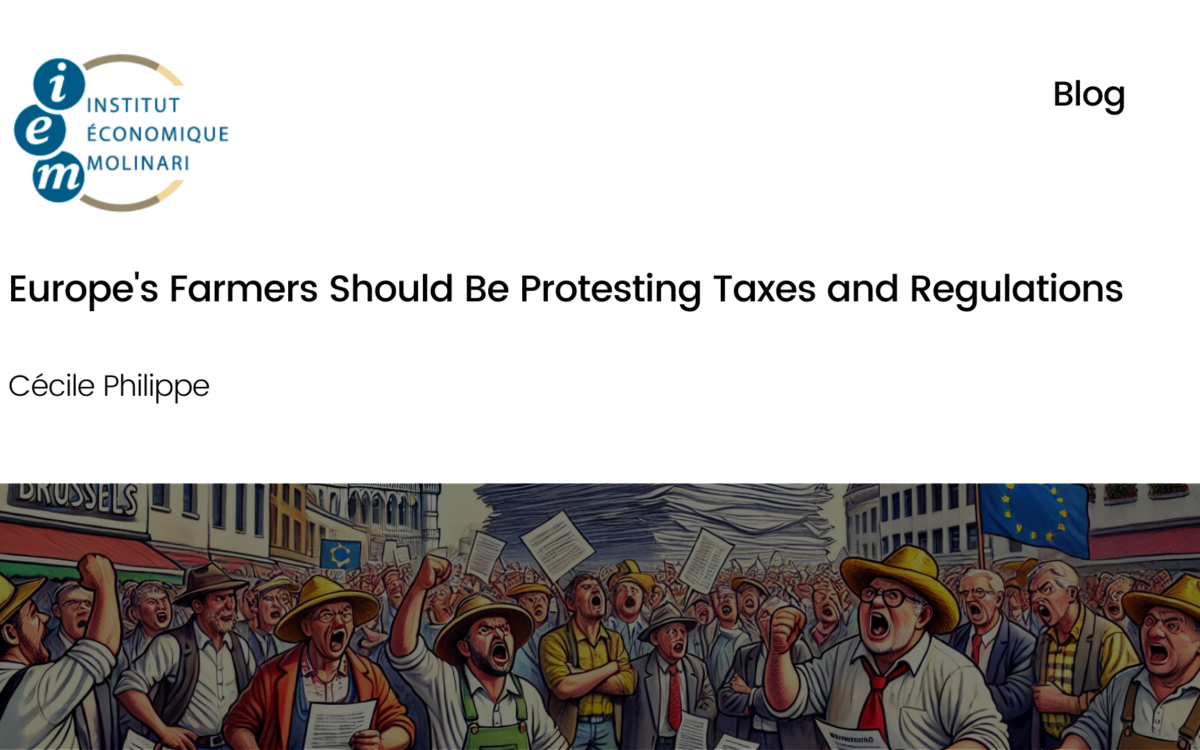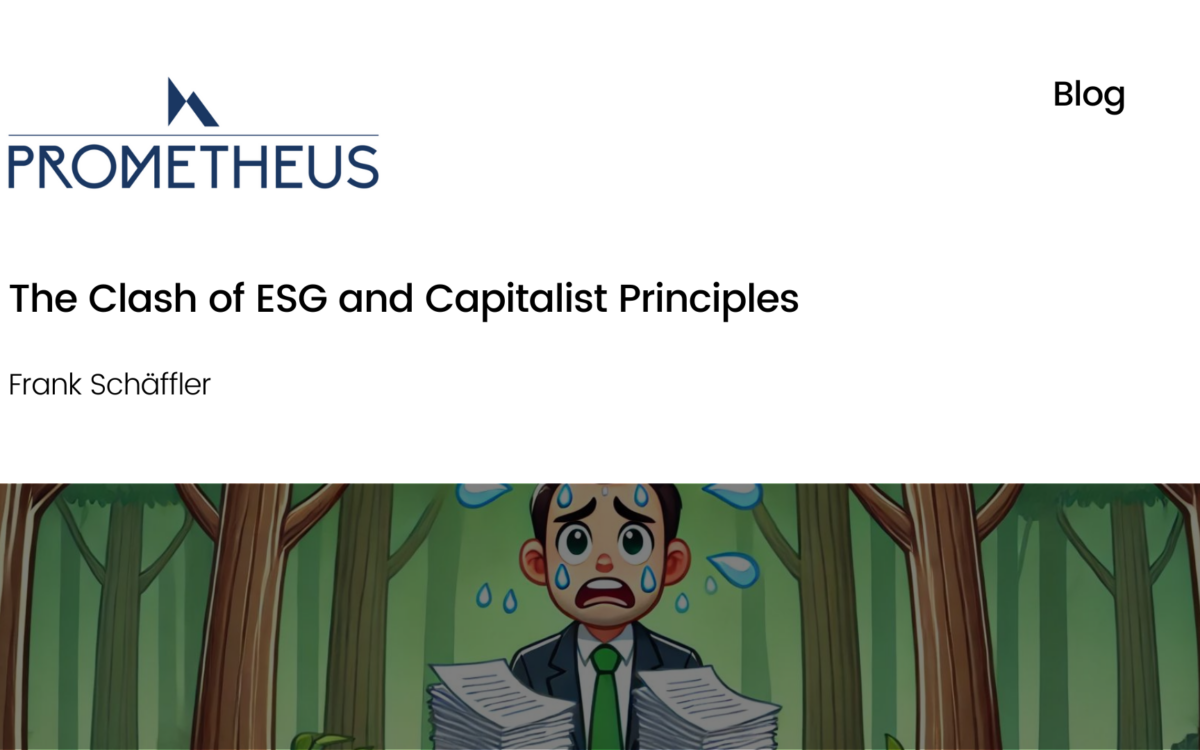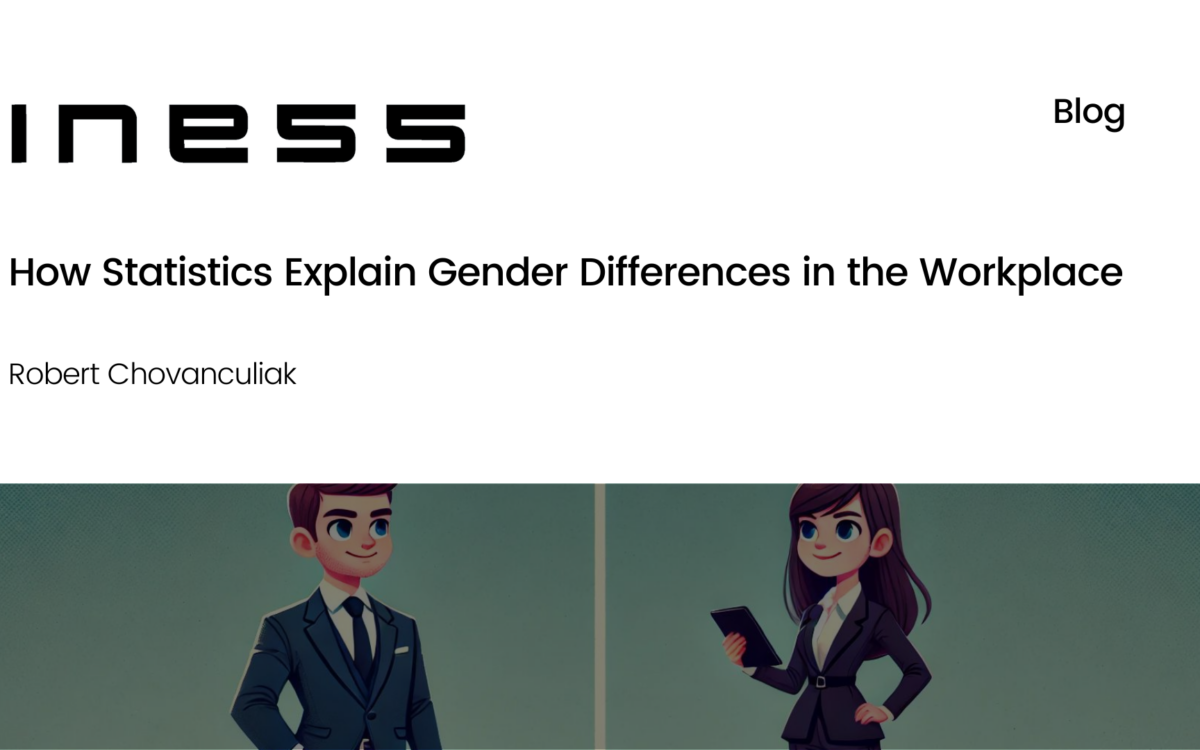Silent Taxation: The Burden on Small Businesses

Silent Taxation: The Burden on Small Businesses
Matej Bárta // 15 January 2024
Imagine you are running a business. You have a small business or a trade, and you are making just enough to maintain the same standard of living through challenging times. Then, suddenly, without any increase in your income vis-à-vis the cost of living, the state tells you that you are earning enough to pay more taxes. This may sound absurd, but a segment of Slovak entrepreneurs experience a similar situation every year in the form of the obligation to register as a value-added tax (VAT) payer.
When Slovakia negotiated its accession to the European Union (EU), it negotiated €35,000 as the limit to be eligible for VAT registration. This was back in 2004, when due to the weak exchange rate of the Slovak Koruna, the limit was acceptable. However, the Koruna strengthened significantly over time, and by the time Slovakia entered the eurozone, the limit had risen to €49,790 (after conversion). Due to the VAT Directive applicable at the time, the limit was lowered to €35,000. This, however, instantly increased the number of compulsory VAT payers, prompting the government to ask the European Commission (EC) to enforce the €49,790 limit instead. This limit has been in force in the Slovak Republic since 1 July 2009, for more than 14 years now, without amendments.
And therein lies the crux of the problem. While wages (and prices) in Slovakia are rising, the limit at which entrepreneurs are obligated to pay VAT remains the same. At the time the limit was set, the average monthly wage in Slovakia was €744. The VAT registration limit of €49,790 was therefore approximately 70 times higher than the average wage. However, in 2022, the average Slovak wage was €1,304; thus, the VAT registration limit was only about 38 times higher than the average wage. The current high rate of inflation continues to translate into strong wage growth, which will reduce the effective registration limit even further.

In this way, the state has been artificially increasing the tax burden year after year for more than 14 years, making it more and more difficult to do business. The appropriate measure would be to raise this threshold to reflect the higher wage and price levels in the economy, and there is certainly room for an increase. For example, in Romania, the threshold was set at RON 300,000 in 2021, which translates to around €60,300 as of October 2023. Other countries that have followed suit include Italy (VAT registration limit of €65,000 in 2021), France (VAT registration limit of €85,800 for goods businesses and €34,400 for services businesses), and Ireland (VAT registration limit of €75,000 for goods businesses and €34,400 for services businesses).
At present, according to a derogation from Article 395 of the VAT Directive, any change in the threshold must be permitted and enforced by the EC. This was the case in the Czech Republic, where, on 2 November 2021, the government agreed to authorise the Ministry of Finance to apply to the EC for an increase in the threshold from the current threshold of CZK 1 million to CZK 2 million. At the end of 2021, the Czech Republic requested that the threshold be increased from €35,000 to €85,000 by 31 December 2024. The Czech Republic’s request was granted at the end of May 2022, and the new limit comes into effect from 1 January 2023. It has been estimated that this will reduce the number of VAT payers by up to 105,000.
As per the current trend and the average wage of €1,304 as of 2022, the new limit in Slovakia should amount to €91,280 (70 times the average wage). However, the EU legislation, which will be enforced from 1 January 2025, does not allow for an increase in the VAT liability limit to more than €85,000. Therefore, in the first half of 2024, the new Slovak government should prepare a bill to increase the limit to €85,000. For the sake of promoting small businesses, it would be advisable to implement this change as soon as possible. Entrepreneurs alone do not stand to benefit from such an increased limit. With lower costs, entrepreneurs will be able to afford to set lower prices for their products. Therefore, ultimately, consumers will also benefit from such a measure, too.
In their programmes, three parties have promised an increased limit for compulsory VAT registration, namely:
1) KDH (Christian Democratic Party), which has proposed raising the threshold for compulsory VAT registration to €60,000 per year.
2) SaS (Freedom and Solidarity), which says it will increase the threshold for compulsory registration as a VAT payer to €75,000. SaS says that, as of 1 January 2025, it will raise this threshold to €85,000.
3) SNS (Slovak National Party), which has proposed raising the turnover limit for the obligation to register as a VAT payer to €100,000.
We are therefore hopeful that the government, whatever its composition, will find support for such a proposal.
The original article was first published on INESS’ blog.
EPICENTER publications and contributions from our member think tanks are designed to promote the discussion of economic issues and the role of markets in solving economic and social problems. As with all EPICENTER publications, the views expressed here are those of the author and not EPICENTER or its member think tanks (which have no corporate view).



